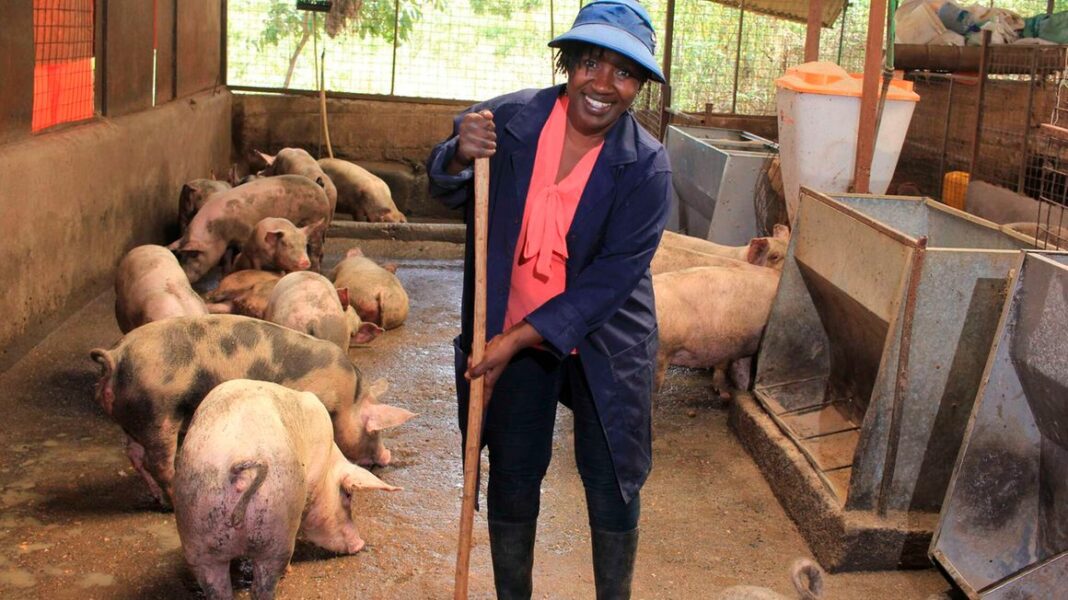For a long time, pig farming seemed unprofitable for Christine Miyogo, the proprietor of Misega Farm Limited, a pig breeding farm in Embu.
However, with time, the farmer realized she only lacked knowledge in the venture that later became her main source of income.
Miyogo revealed she started pig farming as a side hustle in 2014 in Rongai, Kajiado County. In partnership with her husband, the duo started importing boars and sows from South Africa, Zambia, and Uganda for breeding and production.
“It was very tough at the initial stages as my husband and I were still in formal employment with little knowledge and information on piggery,” she says.
“We didn’t even know which breed we had bought. The second mistake we made was the failure to carry out proper research on what successful piggery business entails,” she adds.
They sold their first stock of pigs at nine months, weighing 35kg each. With little knowledge of the venture, she did not realize this was way below optimum, thanks to a friend who advised her to take it as her full-time job.
She started researching on pig farming including visiting several farms locally and in Uganda to hone her skills.
Nicholus Ouma: Why I don’t regret investing my Sh200,000 in timber business
This way, she was able to learn about different pig breeds but ended up picking those from Uganda, which gave her good results.
Among the challenges she encountered was waste management which forced her to move her animals from Kajiado to Embu. Rogue employees were also another challenge, and she was forced to sack all workers and hire new ones.
“We had to sack all the employees and bring in new ones and despite the investments in new breeds and stocking of commercial feeds, we were still not getting the results we wanted in terms of production and weight gain,” she says.
While the animals started gaining market weight quite early, the farmer says she was not selling them regularly and this made the business unreliable.
In a quest for success, Misego decided to start afresh. This time she teamed up with other pig farmers and travelled to Zambia and South Africa to ship in another batch of breeds, boosting production.
“Piggery is a capital-intensive business, and for one to attain profitability, it takes a journey of five years, and if you do not know how the business goes, you end up making losses due to a lack of information,” she cautions.
Kiambu farmer making Sh6.7 million from 158 dairy cows
Her farm currently hosts 36 highbred sows an increase from nine. On average, she sells 50 animals to Farmers Choice a month and plans to introduce weekly sales.
However, she maintains that what makes the pig business grow is the number of sows, and for them to sell weekly, they have to increase the number of sows from 36 to 94.
She adds that getting the right breed is crucial for a profitable pig business.
“Breeds are about different genetics, and all you do is try a different one to see if they can grow fast and improve litter size, among others. That’s what we are trying to do,” she says.
The farmer explains that high production costs are the biggest nightmare in the pig business. However, using homemade feeds has helped her cut the cost.
“Every risk has an opportunity underneath, and for us, the high cost of raw materials forced us to come up with a new feed formulation without compromising on quality, which in turn enabled us to lower our cost of production, improve our profit margin over time,” she says.

